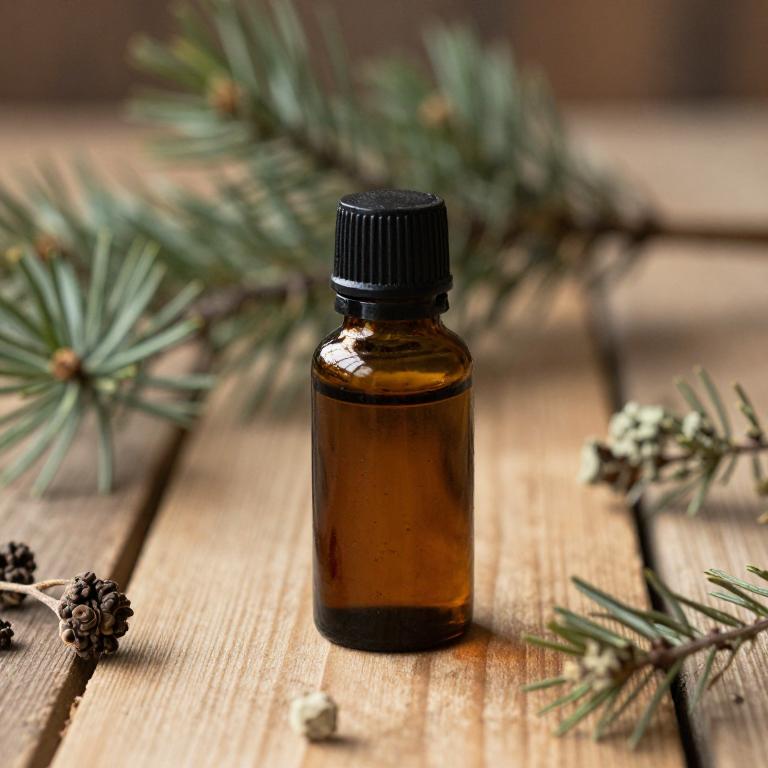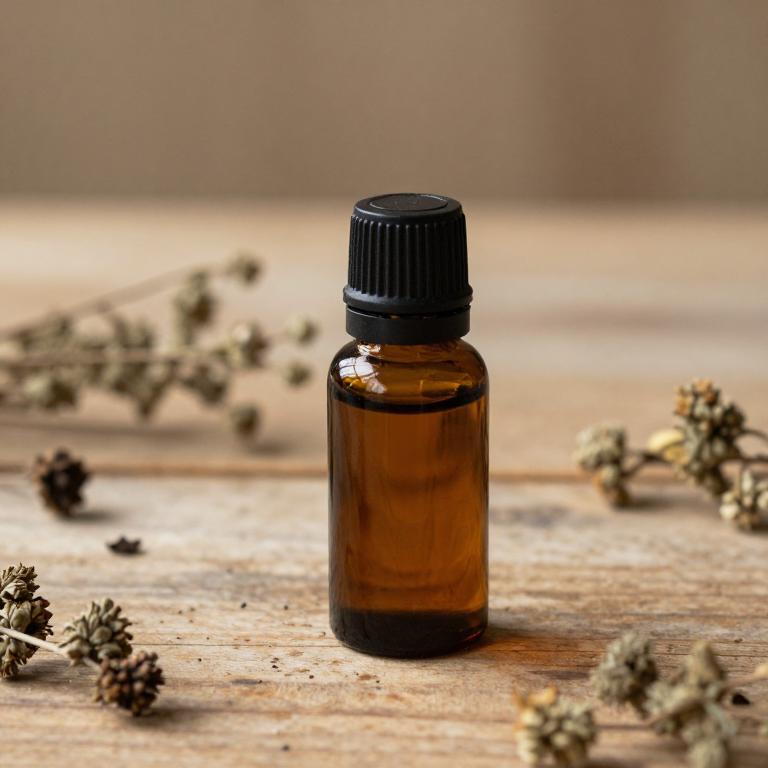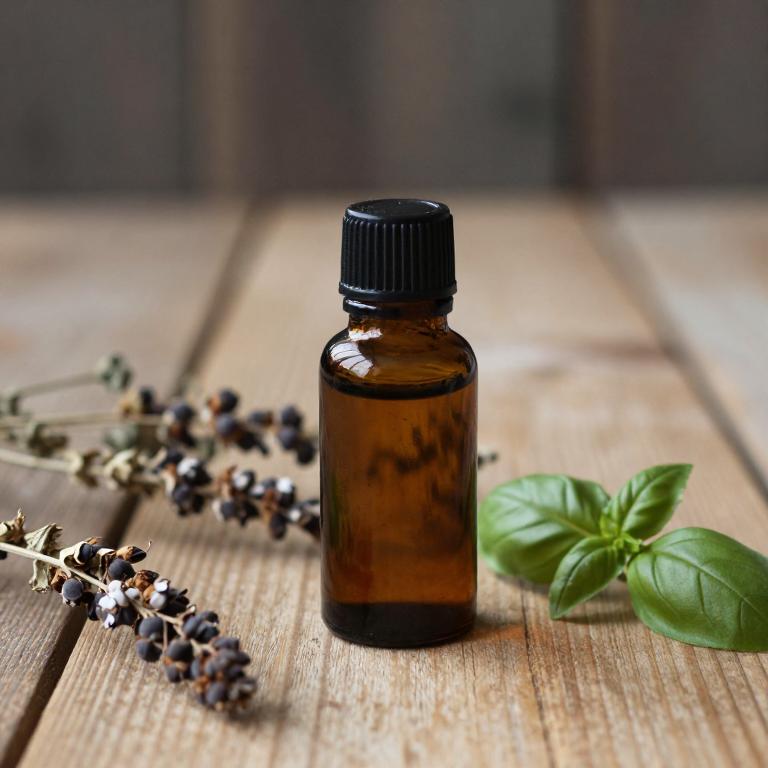10 Best Herbal Essential Oils For Post Nasal Drip

Herbal essential oils such as eucalyptus, peppermint, and lavender are often used to alleviate symptoms of post nasal drip due to their anti-inflammatory and decongestant properties.
When diffused or applied topically, these oils can help reduce mucus production and ease nasal congestion, providing relief from the constant drip. Eucalyptus oil, in particular, is known for its ability to clear airways and soothe respiratory discomfort. However, it is important to dilute essential oils properly before use to avoid skin irritation or allergic reactions.
While these natural remedies can be beneficial, they should complement, not replace, professional medical advice for persistent or severe cases of post nasal drip.
Table of Contents
- 1. Eucalyptus (Eucalyptus globulus)
- 2. Thyme (Thymus vulgaris)
- 3. Scots pine (Pinus sylvestris)
- 4. Rosemary (Rosmarinus officinalis)
- 5. English lavender (Lavandula angustifolia)
- 6. Melaleuca (Melaleuca alternifolia)
- 7. Peppermint (Mentha piperita)
- 8. Citrus sinensis
- 9. Basil (Ocimum basilicum)
- 10. Ceylon cinnamon (Cinnamomum zeylanicum)
1. Eucalyptus (Eucalyptus globulus)

Eucalyptus globulus, commonly known as Australian eucalyptus, is a popular source of essential oil used for its therapeutic properties, particularly in alleviating symptoms of post-nasal drip.
The oil contains powerful compounds like 1,8-cineole, which has anti-inflammatory and decongestant effects that help reduce mucus production and ease respiratory congestion. When used in steam inhalation or diffused in a room, eucalyptus globulus oil can help clear nasal passages and improve breathing. It is often recommended as a natural remedy for those suffering from chronic or acute post-nasal drip due to its soothing and cleansing properties.
However, it should be diluted properly and used with caution, especially for individuals with asthma or sensitive skin.
2. Thyme (Thymus vulgaris)

Thymus vulgaris, commonly known as thyme, is a popular herb used in aromatherapy for its potent essential oils, which are believed to support respiratory health.
The essential oil of thyme contains compounds like thymol and carvacrol, which have antimicrobial and anti-inflammatory properties that may help alleviate symptoms of post nasal drip. When used in steam inhalation or diffused in the air, thyme essential oil can help clear nasal passages and reduce mucus buildup. However, it should be diluted with a carrier oil before topical application to avoid skin irritation.
While thyme essential oil may offer some relief, it is advisable to consult a healthcare professional before using it as a treatment for persistent or severe post nasal drip.
3. Scots pine (Pinus sylvestris)

Pinus sylvestris, commonly known as Scots pine, produces a distinctive essential oil that has been traditionally used for its aromatic and therapeutic properties.
The essential oil of Pinus sylvestris contains compounds such as alpha-pinene and beta-pinene, which are known for their anti-inflammatory and decongestant effects. When used in inhalation therapy or diluted topical applications, this essential oil can help alleviate symptoms of post-nasal drip by reducing mucus production and soothing irritated nasal passages. Its fresh, woody aroma also has a calming effect, which can support respiratory comfort.
Due to its natural properties, Pinus sylvestris essential oil is often recommended as a complementary remedy for managing chronic or occasional post-nasal drip.
4. Rosemary (Rosmarinus officinalis)

Rosmarinus officinalis, commonly known as rosemary, produces an essential oil that is often used in aromatherapy for its stimulating and decongestant properties.
This essential oil contains compounds like cineole and camphor, which can help reduce inflammation and thin mucus in the nasal passages, making it beneficial for individuals suffering from post-nasal drip. When used in steam inhalation or diffused in a room, rosemary essential oil may help alleviate congestion and promote clearer breathing. However, it should be diluted with a carrier oil before topical application to avoid skin irritation.
While it can be a supportive complementary therapy, it is important to consult a healthcare professional for persistent or severe post-nasal drip symptoms.
5. English lavender (Lavandula angustifolia)

Lavandula angustifolia, commonly known as English lavender, is widely recognized for its calming and therapeutic properties, including its potential benefits for respiratory health.
The essential oil derived from this plant contains compounds such as linalool and linalyl acetate, which have anti-inflammatory and antimicrobial effects that may help reduce symptoms of post nasal drip. When used in aromatherapy or diluted for topical application, lavender essential oil can help soothe irritated nasal passages and ease congestion. Its soothing aroma also promotes relaxation, which can indirectly support recovery by reducing stress-related exacerbation of symptoms.
However, it is important to consult with a healthcare professional before using essential oils, especially for individuals with pre-existing medical conditions or allergies.
6. Melaleuca (Melaleuca alternifolia)

Melaleuca alternifolia, commonly known as tea tree oil, is a powerful antiseptic and anti-inflammatory essential oil that has been used for its therapeutic properties for centuries.
When used appropriately, it can help alleviate symptoms of post nasal drip by reducing inflammation and fighting off bacterial or viral infections that may contribute to the condition. Its antimicrobial properties make it effective in clearing nasal passages and reducing mucus buildup. However, it should always be diluted with a carrier oil before topical application or used in a diffuser to ensure safety.
While it can be a useful complementary therapy, it is important to consult with a healthcare professional before using it, especially for individuals with allergies or existing medical conditions.
7. Peppermint (Mentha piperita)

Mentha piperita, commonly known as peppermint, is a widely used herb in aromatherapy for its refreshing and invigorating essential oil.
The essential oil of peppermint contains potent compounds like menthol and limonene, which possess decongestant and anti-inflammatory properties. When used in steam inhalation or diffused in a room, peppermint essential oil can help alleviate symptoms of post nasal drip by reducing mucus viscosity and clearing nasal passages. Its cooling effect also soothes irritated tissues in the throat and nasal cavity, providing relief from congestion and discomfort.
However, it is important to dilute the oil properly and consult with a healthcare professional before use, especially for individuals with respiratory conditions or allergies.
8. Citrus sinensis

Citrus sinensis, commonly known as sweet orange, is a popular source of herbal essential oils that may offer relief for postnasal drip due to its antimicrobial and anti-inflammatory properties.
The essential oil derived from the peel of the fruit contains compounds like limonene and linalool, which can help reduce mucus production and soothe irritated nasal passages. When used in aromatherapy or diluted topical applications, orange essential oil can promote respiratory comfort and ease congestion associated with postnasal drip. It is often blended with other essential oils such as eucalyptus or peppermint to enhance its decongestant effects.
However, it is important to consult a healthcare professional before using essential oils, especially for individuals with respiratory conditions or allergies.
9. Basil (Ocimum basilicum)

Ocimum basilicum, commonly known as basil, is a versatile herb whose essential oil has been traditionally used for its aromatic and therapeutic properties.
The essential oil of basil contains compounds such as linalool and eucalyptol, which possess anti-inflammatory and antimicrobial effects, making it beneficial for respiratory conditions like post nasal drip. When used in steam inhalation or diffused into the air, basil essential oil can help clear nasal congestion and reduce mucus production. It is often recommended as a natural remedy to alleviate symptoms associated with sinusitis and upper respiratory infections.
However, it is important to dilute the oil properly before use and consult with a healthcare professional, especially for individuals with sensitive skin or existing health conditions.
10. Ceylon cinnamon (Cinnamomum zeylanicum)

Cinnamomum zeylanicum, commonly known as cinnamon bark, contains a variety of essential oils that have been traditionally used for their aromatic and therapeutic properties.
The essential oil derived from this plant is rich in cinnamaldehyde, which possesses antimicrobial and anti-inflammatory effects, making it potentially beneficial for respiratory conditions like post nasal drip. When used in aromatherapy or inhalation, cinnamon essential oil may help to reduce mucus production and soothe irritated nasal passages. However, it is important to use it in diluted form and consult with a healthcare professional, especially for individuals with sensitive skin or respiratory conditions.
Despite its potential benefits, more scientific research is needed to fully understand its efficacy and safety for treating post nasal drip.